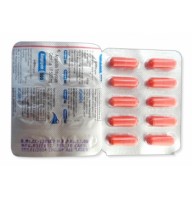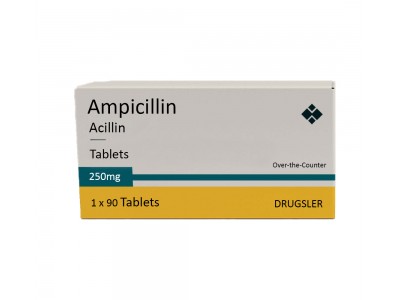Ampicillin is a broad-spectrum antibiotic commonly prescribed for bacterial infections. However, like many medications, Ampicillin can interact with other drugs, which may affect how well it works or increase the risk of side effects. In this article, we will explore the common drug interactions with Ampicillin, their potential side effects, and how to manage these risks effectively.
Understanding Ampicillin and Its Mechanism
Ampicillin belongs to the penicillin class of antibiotics and works by inhibiting the growth of bacteria. It's often prescribed for infections caused by susceptible bacteria, such as pneumonia, urinary tract infections, and strep throat. Despite its effectiveness, it’s crucial to consider any Ampicillin drug interactions that may affect its performance or lead to complications.
Common Drug Interactions with Ampicillin
Ampicillin and drug interactions list includes many medications, both prescription and over-the-counter. For instance, combining Ampicillin with other antibiotics may not only reduce the effectiveness of either medication but could lead to an increased risk of side effects such as gastrointestinal disturbances.
Ampicillin and Painkillers
Some painkillers, especially nonsteroidal anti-inflammatory drugs (NSAIDs) like ibuprofen, may interact with Ampicillin. This combination could potentially increase the risk of kidney damage, especially when taken over an extended period. Additionally, NSAIDs may affect the blood pressure-lowering effects of certain medications when used alongside Ampicillin and blood pressure medication interactions.
Ampicillin and Other Drug Interactions
For individuals with allergies, Ampicillin and allergy medication interactions are also an important consideration. Certain antihistamines or decongestants may reduce the effectiveness of Ampicillin or enhance side effects like dizziness and drowsiness.
How to Avoid Ampicillin Drug Interactions
To minimize Ampicillin drug interaction warning, it is essential to inform your healthcare provider of all medications, including supplements, that you're taking. They will be able to adjust your prescription regimen to reduce the risk of adverse reactions. Additionally, it's advisable to monitor for any unusual symptoms or side effects when starting a new medication while on Ampicillin.
What to Do in Case of a Drug Interaction
If you suspect that you are experiencing side effects from an Ampicillin drug interaction, contact your healthcare provider immediately. Symptoms of serious interactions can include severe abdominal pain, skin rashes, difficulty breathing, or severe fatigue. The healthcare provider may choose to adjust your medication or offer alternative treatments to address the infection without compromising your health.
Conclusion
While Ampicillin is generally safe and effective when taken as prescribed, drug interactions with other medications can lead to complications. By being aware of common interactions, such as those with painkillers, blood pressure medications, and allergy medications, you can take steps to avoid potential issues. Always consult your doctor before combining Ampicillin with other medications and adhere to their guidance to ensure optimal outcomes.

